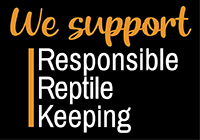How do I create a Terra Sahara BioActive Vivarium
How do I create a Terra Sahara Bioactive Vivarium?
From the desk of The Dude
What is a bioactive terrarium?
A bioactive terrarium is a self-sustaining, self-maintaining, direct replication of the natural ecological cycle that happens on the rainforest floor. The rainforest floor is composed of thousands of different detritivores that break down decaying matter to return nutrients back into the soil. Detritivores such as isopods and springtails are the most commonly seen on the rainforest floor.
Why go bioactive?
In any terrarium the soil is the most important part of the setup. The soil is the backbone for live plants, water drainage, and tank maintenance. Many times, hobbyists will setup a terrarium and have to break it down months later because of the microbial build up in the soil, as well as the death of plants from using soil that becomes water clogged. Having a proper bioactive setup allows for optimum plant growth, but also allows for tank longevity (10+ years without a soil change) if kept properly. The detritivores established in the tank will break down feces and other decaying matter which recycle nutrients back into the soil, thus keeping the substrate fresh and ready for the next generation. Many small amphibians such as dart frogs relish the springtails and isopods as an additional food source. Having these micro feeders established will bring out unique behaviors in your pets such as foraging and hunting and will thrive in an environment that is a direct replication of the natural ecological cycle, they are accustomed to.
How do I go bioactive with a Terra Sahara setup?
Layer 1 - Terra Sahara substrate
The bottom layer of your terrarium sits the bringer of life, the specialty terrarium soil known as Terra Sahara. This specialty mix created by the dude is the staple for a living substrate. The BioDude handcrafted bioactive substrate for reptiles such as bearded dragons, uromastyx, leopard geckos, and other desert dwelling reptiles. This substrate is specifically designed for biomes that can get very dry and arid, but occasionally have minor humidity spikes. Terra Sahara, a one-of-a-kind substrate is designed to hold the perfect amount of water while allowing for evaporation, preventing anaerobic bacteria growth, which is a common issue in desert terraria. Terra Sahara also retains all burrows and hides. I have found this substrate brings out many of the instinctual niches that many desert animals do in their daily life. Not only does it hold a burrow, but it also holds a complete tunnel when the moisture content is held at 25%-40%. Terra Sahara provides excellent organic nutrition for your vivarium by creating necessary air pockets for root development and plant health. These air pockets are also necessary for the springtails and isopods to create a sustainable population in the vivarium. This substrate when used exactly as directed in the Dude's guide this substrate can last 10+ years in the terrarium without ever being changed. This mix should have at least a 3” layer in the terrarium. When this mix is added it should be dumped into a bucket full of water, and squeezed so it is 50% saturated, but not dripping. This is the appropriate water balance that this soil will maintain during the life of the vivarium.
Layer 2 (above the substrate)
The true meaning of bioactive comes from these small organisms that are seeded into your terrarium after the previous steps have been fulfilled. These small insects, also known as detritivores, are the key to the longevity of your terrarium. The isopods are larger organisms similar to the rolley polley insect we see commonly here in the USA. Isopods are your top janitors that will be established in your vivarium. They will quickly chase down a piece of decaying matter, cover it, and devour it very quickly. As they break down the decaying matter the essential nutrients are put back into the soil. Isopods are also an excellent source of bioavailable food for small amphibians and reptiles. They are very high in calcium, minerals, and vitamins that are a great supplemental source of food found naturally in the tank. These microorganisms will breed very quickly in the tank and create a small micro population that will establish quickly in your terrarium. Springtails are another tank janitor, but besides breaking down decaying matter they also flow through the soil. These small microorganisms will aerate the soil which help with drainage, root development, and longevity of the terrarium. These are also an excellent source of food for small amphibians such as dart frogs and will encourage their natural foraging behavior exhibited in the wild. To seed your tank is simple. Simply dump a culture of springtails and a culture of isopods into the tank and they will quickly form a sustainable population in the terrarium.
Layer 3 (above the microfauna)
Leaf litter is an absolute must when having a bioactive setup. Decaying plant matter is what drives the beginning process of the ecological cycle on the rainforest floor. As the terrarium progresses with age the leaves will eventually breakdown (with the help of the springtails and isopods) and put essential nutrients back into the soil. Leaves provide hiding spots for many small amphibians and reptiles as they forage on the forest floor looking for food. Leaves also help boost springtail and isopod levels in the terrarium. When initially seeding the terrarium with leaves I typically do a generous 1⁄2” layer. As the terrarium progresses with age, and the leaves start to breakdown.
Maintenance with your Sahara -
While the bio activity is a key factor with the life of the vivarium, the substrate itself will need spot cleaned occasionally in specific areas of the terrarium. Generally, most reptiles defecate in the same area. To help with cleanup, it is important that the substrate itself is relatively damp in that area, as the springtails/isopods will flourish in that area and breakdown the fecal matter quicker. You will need to add in biodegradables such as leaf litter and sphagnum moss as this aid in the breakdown process and aeration, if not your system will begin to breakdown the soil itself and will not function in the way intended,
- Breakdown on biodegradable for arid; 3-4 months
The Dude Abides
-Josh Halter
www.thebiodude.com
Written: January 17th, 2017
Fact Checked and updated: July 19th, 2022
- Josh Halter








